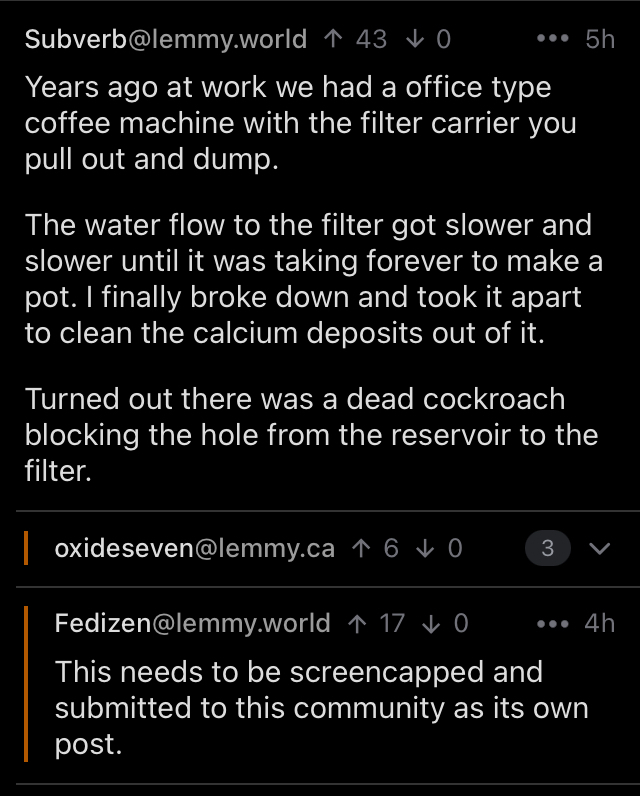this post was submitted on 08 Feb 2024
726 points (98.7% liked)
Microblog Memes
5837 readers
1941 users here now
A place to share screenshots of Microblog posts, whether from Mastodon, tumblr, ~~Twitter~~ X, KBin, Threads or elsewhere.
Created as an evolution of White People Twitter and other tweet-capture subreddits.
Rules:
- Please put at least one word relevant to the post in the post title.
- Be nice.
- No advertising, brand promotion or guerilla marketing.
- Posters are encouraged to link to the toot or tweet etc in the description of posts.
Related communities:
founded 1 year ago
MODERATORS
you are viewing a single comment's thread
view the rest of the comments
view the rest of the comments

Are you glad because I'm not very inventive, or because my description demonstrates I'm disturbed?
And I have so many additional questions.
I can go on, but man this is weird...
I'm glad because I have a visual memory.
No they feed them before birth. The embryos start with a small yolk but soon have well developed mouths and after the yolk is gone they lie in there drinking milk from the sac walls.
It technically makes them viviparous (continuing to give nutrients to live embryo in real time as opposed to an egg with a yolk)
I have not been able to find details but as far as I can see the filter is a "larva substitute" so presumably it gets inserted before birth.
Brood sack (like a placenta) is in abdomen and the milk is secreted into it.
I'd say it is a delicate operation but it's not a liquefied mess, it's a bunch of baby insects sucking the walls.
Photo of one giving birth
Scientific paper about the milk that gives the above details.